- 8 Posts
- 3 Comments

 1·11 months ago
1·11 months agoFrom Paddy Crerand, writing for The Telegraph:
You know something about Bobby Charlton that people didn’t realise? He was the shyest man that God ever created. If anybody gave him praise, he blushed.
He was a lovely fella, Bobby, there’s no question about that but he was totally different from his brother, Jack. Jack was much more outgoing than Bobby. You cannot believe that, somebody who did the things that he did, when people would speak to him about it, he would go red-faced. He was so shy, it was ridiculous.
But what a player.
We always used to talk at Old Trafford: what was his natural foot? His right one or his left one? And nobody bloody had a clue what his natural foot was. That was how good he was with both feet. You never knew which one was the fricking natural one.
Of course, the Munich air disaster had a lasting impact on him. You’re a young kid at a club and you go there when you’re 14, 15, and you’re playing with players that you’ve come through the ranks with, and, all of a sudden, they’re dead. I remember that and I suppose everybody does in my age group. But, funnily enough, he never mentioned it. I played at United when Harry Gregg was playing and Harry never mentioned it either. You mentioned Munich and both of them went quiet. Never said a word.
I remember when we won the European Cup, Matt Busby and Jimmy Murphy having a go at us because it was one each and we should’ve won the game. We were all at one another’s throats more or less. All that sort of stuff that you do when you’re playing. People don’t think that but you argue with each other and you have a go at each other to lift your game and that sort of thing. That’s what all the arguments and moaning are all about. And, 15 minutes later, we were bloody winning 4-1! He was great, Bobby, in actual fact.
Read more ⤵️

 1·11 months ago
1·11 months agoFrom The Telegraph’s Business Editor, Ben Marlow:
Big business swamped Liverpool’s Arena and Convention Centre, turning the Labour party conference into a mini-Davos. Google, Mastercard, Ikea and Barclays paid for exhibition stands next to the main conference hall. Deliveroo and Goldman Sachs held fringe events. The parliamentary lounge sponsor was Lloyds bank.
A special business forum with Keir Starmer, shadow chancellor Rachel Reeves and shadow business secretary Jonathan Reynolds was sold out a month beforehand – 200 bigwigs snapped up tickets at a cost of £2,520 a piece. Hundreds more put their names on a waiting list in the hope that someone would drop out.
Amid the jostling, one exhibitor in particular stood out, and not just because of the green and yellow hydrogen-powered 4x4 that was parked in front of its stand. Billionaire industrialist Sir Jim Ratcliffe had dispatched a top team from his chemicals empire Ineos to the jamboree.
As the second-richest man in Britain, one of the country’s most prominent Brexiteers, biggest carbon emitters and a two-time tax exile, it is hard to think of a more unlikely Labour backer. But Ratcliffe’s delegation had serious work to do.
“It was a big team of people and they were coming and going all the time,” one delegate said.
After 10 years of cheap money and mostly friendly government, Britain’s foremost industrialist is facing spiralling interest rates and the prospect of Ed Miliband in charge of energy policy.
Having spent months battling Qatar to invest in his beloved Manchester United, rocketing costs have left Ineos facing its most serious financial squeeze since the credit crunch. Then, debts from a decade of dizzying deal-making came within a whisker of overwhelming it.
As Ratcliffe turns 71 years-old, questions over how Ineos navigates this next chapter are unavoidable for a billionaire increasingly stepping into the limelight. Will the swashbuckling dealmaker again lead it into calmer waters and a new era of growth? Or is his swelling collection of trophy assets the sign of a man preparing to hand over day-to-day running of Britain’s biggest private company?Either way, the tycoon and the sprawling petrochemicals conglomerate that he has spent 25 years assembling are at a crossroads.
Boy’s toys
Ratcliffe has assembled an impressive collection of boy’s toys even for someone with a fortune estimated at nearly £30bn by the Sunday Times Rich List.
He has a private jet and a £130m mega-yacht complete with an underwater viewing window in its wine cellar. Ratcliffe splits his time between homes in Monaco – where he has controversially chosen to become a tax exile for the second time – Majorca, Chelsea, and Lake Geneva in Switzerland. He is radically redeveloping his beachside property in Hampshire, too, to the irritation of some neighbours.
Ratcliffe also owns the struggling fashion label Belstaff, and has started a car company from scratch. It was the Ineos Grenadier – a 4X4 that aims to replace the discontinued Land Rover Defender – on show at the Labour Party conference.
His attention has increasingly been divided by sport, too. In 2017, he bought Swiss side FC Lausanne-Sport and despite admitting to some “silly errors” – they were relegated into the second tier last year – he went on to pay £88m for French top-flight side OGC Nice in 2019.
Read more ⤵️
https://www.telegraph.co.uk/business/2023/10/21/manchester-united-sale-jim-ratcliffe-ineos-bid/
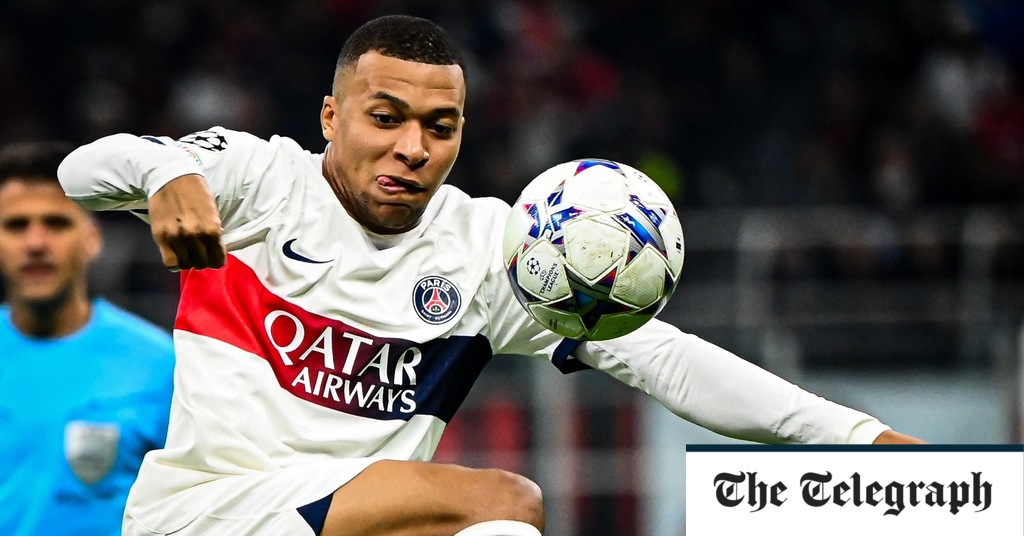



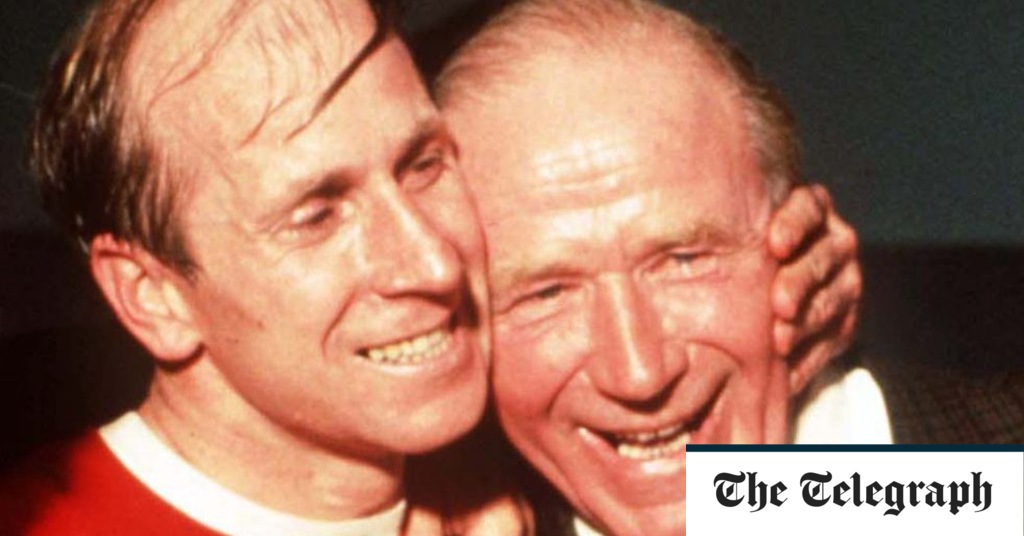
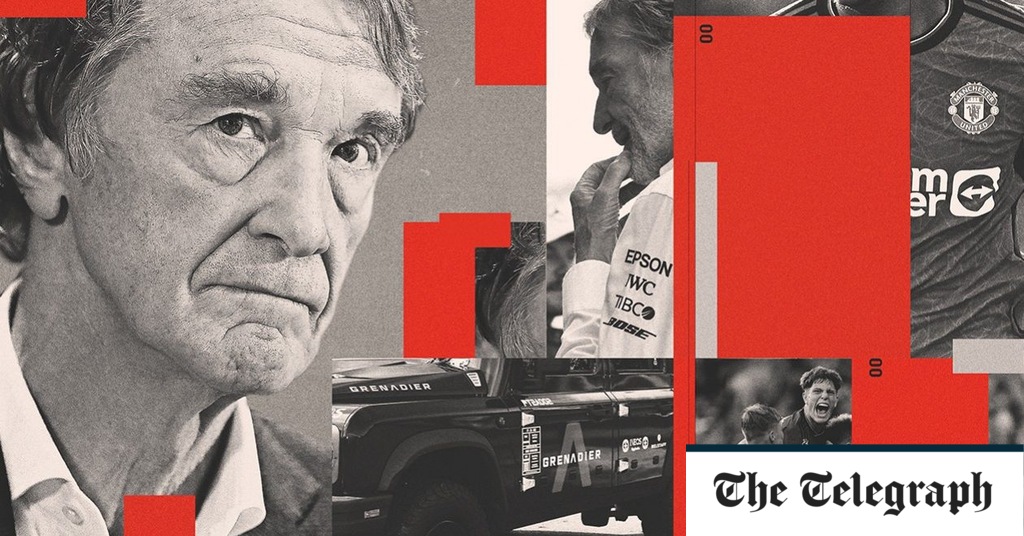
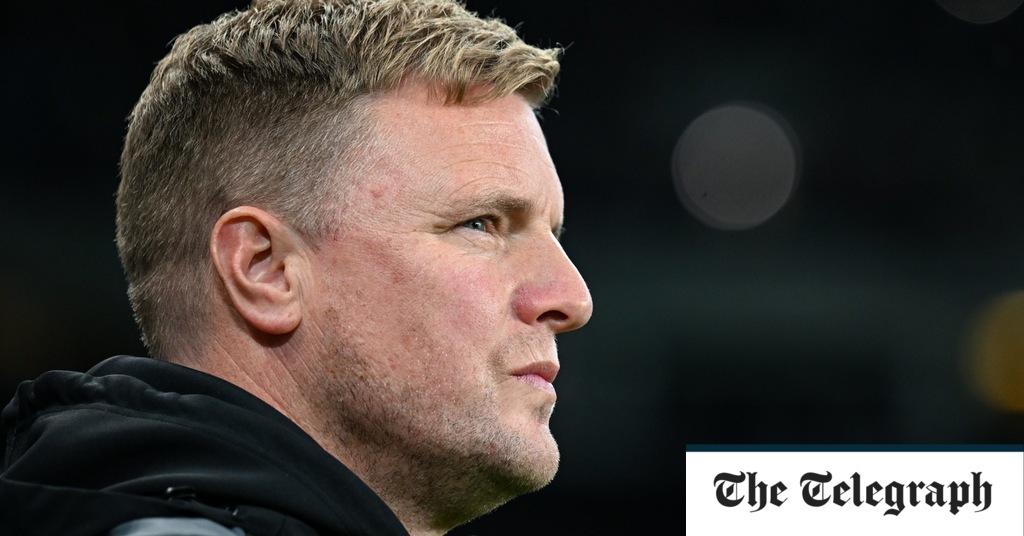
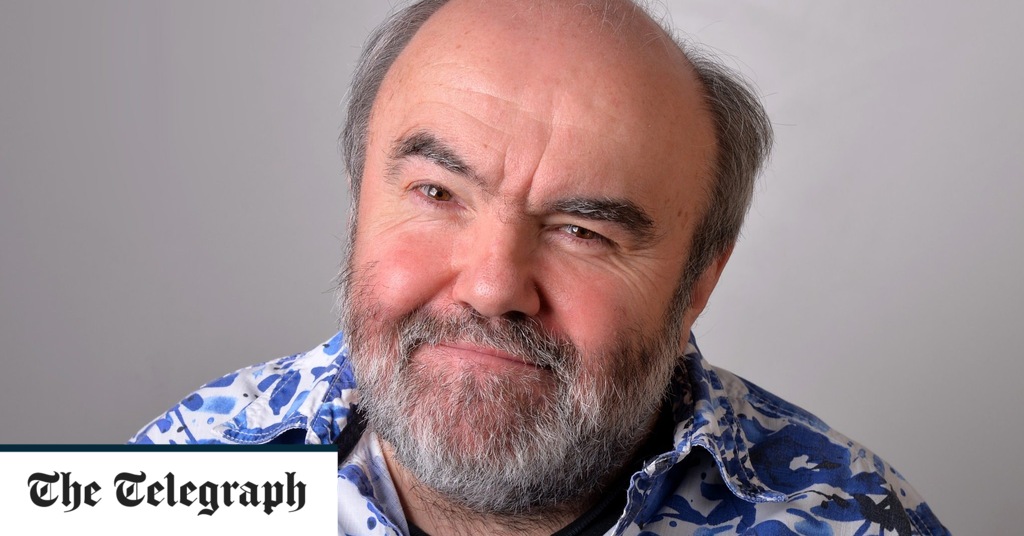
Chief football writer Sam Wallace writes in The Telegraph:
Florentino Perez, the grand old man of Real Madrid, did not leave much unsaid as he laid out his world view at the club’s AGM, which – as can be the case with men of a certain vintage – turned into a list of the people and the things he does not like.
Uefa, Javier Tebas, La Liga’s private equity deal with CVC, referees, Var, the new Champions League format, Tebas again. All of them subject to the ire of the 76-year-old who has ruled over European football’s most successful club for 20 of the past 23 years but in recent times has been unable to resist the great changes to the financial landscape. The European Super League was Perez’s last card and he played it badly. Yet he still holds it, dog-eared and worn, hoping that it will one day prove part of a winning hand.
So opposed to Uefa is Perez that he compared the “unprecedented institutional crisis” of European football as he sees it to the commercial obsolescence of Kodak. “The Super League,” he said on Saturday, “is needed more now than ever”.
He believes on December 21 the European Court of Justice will rule in favour of Uefa having to open up its competitions and license the Super League, although not everyone shares that view. This month the club once again claimed to be in profit, but its balance sheet is propped up by huge sales of future revenue – the infamous financial levers, or “palancas” as they are known in Spain.
Another Perez attack on the status quo from the club that once was the establishment. What is going on here? Perez knows some difficult decisions are coming. Not least what happens next summer, when at last it appears at least that the great prize sought by Real for so long – Kylian Mbappe, arguably the world’s best footballer – is due to be out of contract. This is the moment Real have been waiting for and yet nothing looks simple.
There was a plain weird official club statement last Saturday in which Real denied having begun backdoor negotiations with the Mbappe camp. Given that it came apropos of the kind of flaky reports that appear regularly in the Spanish media, it could easily have been ignored.
Then this week, the Cadena Ser radio station, not known for rocking the boat, solemnly reported that Mbappe might not be coming to Real after all. His salary demands, the report, concluded, would be just too great. Meanwhile, in an interview, the Paris Saint-Germain president Nasser Al-Khelaifi, himself recovering from surgery, was upbeat about Mbappe and his PSG “legacy”.
Mbappe may yet leave, perhaps even for Real. He may renew with PSG. A decision is likely in the spring. The consensus seems to be that Mbappe will go where he believes he has the best chance of winning the Champions League. He would like to be part of the first team to do so at PSG but if that seems unlikely, he will leave and it may not necessarily be for Real.
With free agency wage demands likely to be around €70 million per year there are not many who could afford Mbappe, even in the Premier League. As for Real, that question is even more pertinent.
The club are not the biggest payers in European football as they were when, at the turn of the century, in Perez’s first period as president, they broke the transfer market. Jude Bellingham’s first contract did not make him the club’s best-paid player, although his second surely will. Mbappe’s wage demands would place extraordinary pressure on Real, and force upwards what Bellingham would be entitled to demand. All in a period when their finances are already at breaking point.
The AGM voted to authorise another €370 million loan, and as the debt soars, Perez is now, it seems, suggesting an enormous shift in the club’s 121-year-old member-owned constitution. Few details but he mentioned a corporate restructure which would likely see Real privatise itself by stealth, selling off parts of its it operation as subsidiaries in the same way that Barcelona has done.
It was indicative that one of the first questions from the floor at the AGM, from a YouTuber, was about the €70 million of player sales budgeted into the club’s financial projections for next year. That caveat, leaked ahead of Saturday’s meeting, has been a source of concern for the legion of online Real fans who have done their best to ignore the financial realities of the club.
That was one of a number of signs that point towards the strain on the finances. In the summer of last year, Real sold 30 per cent of revenue over 20 years from their remodelled Bernabeu stadium €360 million (£306 million) to the US investor Sixth Street. Previous agreements which began in the financial year 2017-2018 for the sale of future revenue had been in place with another US investor, Providence. The club books these profits as revenue but Uefa sees them as debt.
The Telegraph revealed in July that €122 million (£103 million), 20 per cent of Real’s costs, are unaccounted for in last year’s financial results. The club has always refused to clarify what this expense, a sub-category of “other operating expenses” is used to cover, or specifically whether it is the repayment on the sale of future revenue streams.
The debt for the stadium remodelling project is an extra cost and has climbed to a separate €1.2 billion, only €800 million of which is covered in the original financing bond. In May, Real lost an arbitration tribunal in Paris with the Abu Dhabi energy giant Mubadala over a €400 million stadium naming agreement from 2014 that the club sought to enforce. The sum is almost equal to the new €370 million borrowings the members are being asked to approve.
For many the size of the debt is too great to contemplate. The numbers mean little, but the effect they might have on a club’s transfer summer, especially when it comes to Mbappe – that is one thing they all notice.
Link to the article: https://www.telegraph.co.uk/football/2023/11/12/real-madrid-finances-florentino-perez-kylian-mbappe/